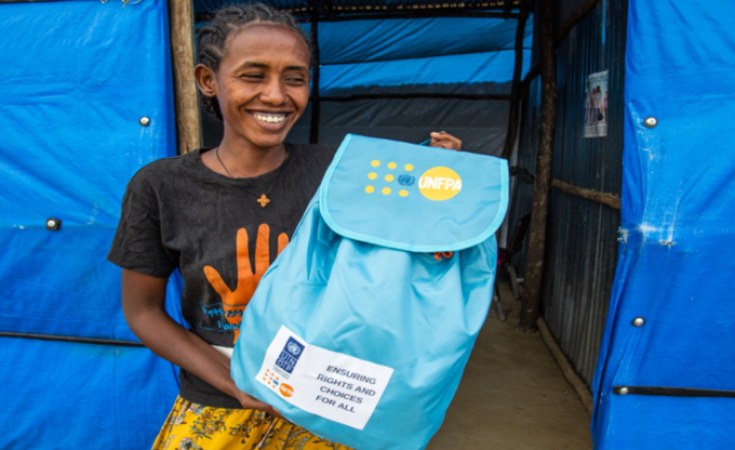Addis Ababa, Ethiopia — About 9,000 Tigrayans inhabiting camps for displaced people in the city of Semera, Ethiopia, are being allowed to return to their hometown of Abala, the U.N.'s Office for the Coordination of Humanitarian Affairs (OCHA) announced Tuesday.
A report by the Ethiopian Human Rights Commission (EHRC) in June found that many people in the camps were being held against their will. It said they were rounded up and forcibly removed from Abala in December because of their Tigrayan ethnicity, when fighting broke out between the Tigrayan People's Liberation Front and Afar regional forces.
In June, VOA visited the two camps in Semera and spoke with people who said they were being held against their will.
Many were told by authorities they were being held in the camp "for their own security" as TPLF attacked and occupied Abala.
One of the people still living in the Semera camp, whose name VOA has withheld for his security, told VOA that nine buses returned people to Abala on Tuesday. He said that since the EHRC report, officials from various offices spoke with them about returning to Abala.
A committee from the camp was allowed to visit Abala to observe the situation for returnees, he said, adding, "The people there told us the security is fine and we met with elders in Abala who endorsed our return."
The TPLF left Abala in late April.
Asked why it had taken until now for inhabitants of the camps to be cleared for return to Abala, Yibekal Gizaw Agonafir from the EHRC told VOA: "The regional state has been working with traditional and religious leaders, primarily from Abala, to ensure that reconciliation happens, before these IDPs are able to return to their place of residence in Abala. This was deemed necessary by the regional state, because there was a lot of tension that was created because of the conflict, and either real or perceived participation or affiliation of these IDPS with the conflict."
Asked the same question, Michel Saad of OCHA said lack of basic services in Abala hindered their return.
"We have to keep in mind that in many of these places the basic services ... have not been functional or are still not functional," Saad said. "Returning them was not a feasible or viable option until now."
According to the U.N., there is no access to electricity, water or health facilities in Abala.


